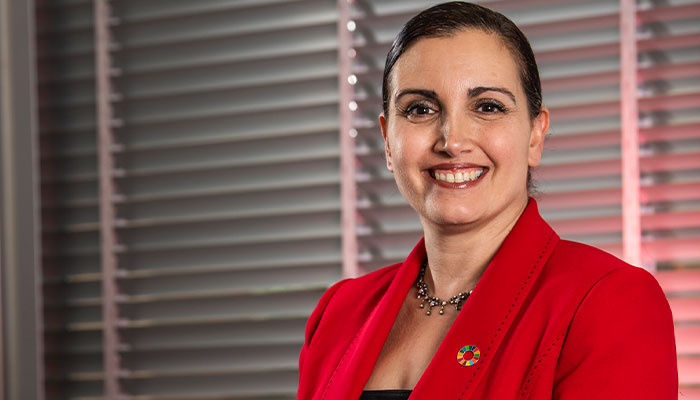Corporate climate activism is now on the rise. Corporate activism, in general, involves utilising the power of the company’s resources and brand to promote changes to the existing social order. To do so, companies target the public, consumers, governments, other businesses, and all stakeholders, either as allies or opponents fighting for a cause, in this case, climate action.

In Australia, companies are pressing Prime Minister Morrison to take more affirmative action in COP26. The Australian Industry Group chief executive Innes Willox said it was crucial for the Australia Government to release a long-term strategy for climate change before Glasgow.
In September 2021, more than 300 American business leaders signed an open letter initiated by the American Sustainable Business Council the calling on the American Congress to immediately address the climate crisis:
“Everywhere, American businesses and communities are threatened, whether we are underwater in New Jersey or New Orleans, burning in the West or experiencing weather disasters destroying Midwest and Southern farms. The reality of climate change is an existential threat, not sometime in the future, but TODAY!”
The European Round Table for Industry published a joint statement with the Business Roundtable, the Business Council of Australia, the Business Council of Canada and the Business Council of Mexico, demanding that governments ensure our survival on this planet.
Why are companies engaging in climate activism? When companies support controversial issues and movements such as Black Lives Matter, #MeToo, or the LGBTQ+ community, they use their powerful voice to transform public opinion and behaviour. In the case of climate activism, companies use the same methods to call governments and the public to act immediately and mitigate the worst global crisis.
Taking a stand: Some companies such as Patagonia encourage people to buy less but buy good quality that lasts.
“Our message to policymakers in Glasgow this month is clear: Set global standards for carbon accounting and offsetting. Right now, it’s wild out there, with a lack of clarity that just feeds greenwashing and delays meaningful action. And our message to businesses? Join us in cutting through the blah, blah. Our voices are stronger when we speak together.”
This quote did not come from Greta Thunberg or other climate activists who urge the heads of states to take immediate climate action at the COP26 United Nations Climate Conference in Glasgow. The quote is from one company known for its climate activism – Patagonia.
Our research identifies seven avenues for corporate climate activism:
1. Lobby for climate action, not against it: With fossil fuel, oil and mining companies spending billions on lobbying and advocacy to ensure their own business continuity, we now witness businesses spending time and effort pushing for climate action. For example, CEOs from over 170 firms have issued a letter to support the European Green Deal and a clearly defined target to reduce greenhouse gas emissions by at least 55 per cent by 2030.
2. Change consumerism: When most companies in the US use “Black Friday” to sell as much as possible, Patagonia issued an important ad, “Do not buy this jacket“. Instead, they asked consumers to reduce, reuse and repair. Although it seems counterintuitive, some companies encourage people to buy less but buy good quality that lasts. Overselling, such as in fast fashion, increases short-term profits but is unattainable in the current crisis.

Taking the lead: Professor Debbie Haski-Leventhal … companies who support controversial issues use their powerful voice to transform public opinion and behaviour.
3. Use voice and online platforms: Browsing through Twitter this month, there are numerous examples of companies using their social media to call for climate action. Ben & Jerry’s has been doing this for years, including corporate political activism and climate activism. Atlassian, the Australian software giant, published a blog titled ‘Don’t F#$% the Planet’, linking climate activism to the company’s core values (‘Don’t F#$% the Client’) and aiming to change public opinion on climate change.
4. Use social marketing: In 2019, IKEA Canada released the ‘The IKEA Climate Change Effect’ ad to raise awareness of the impact of global warming. While IKEA still has sustainability issues in its supply chain, it also aims to change its consumers’ and the public opinion and behaviour towards climate action and activism.
5. Change the supply chain: The most significant proportion of carbon emissions usually comes from the extended supply chain. Companies like Mars now understand that if they do not address environmental issues, farmers who supply their cocoa and coffee would be at risk, which could comprise their entire operation. Together with Danone, Unilever and others, Mars formed the Sustainable Food Policy Alliance to advocate for agricultural carbon markets.
6. Encourage shareholder activism: Some shareholders, such as in the case of Amazon, demand environmental action from the company. While some businesses can become defensive in the light of such demands, others work alongside their shareholders to increase sustainability. Mark Carney, the former governor of the Bank of England and Bank of Canada, encourages investors to lead change from within: “Go where the emissions are […] assisting there with the transition is going to make the difference.”

Working together: Professor Martina Linnenluecke … some businesses work alongside their shareholders to increase sustainability.
7. Work with others to achieve change: corporate activism implies working with employees, consumers, and others to promote climate action. Through its climate actions and activism, Unilever aims to work with its 2.5 billion consumers to reduce its global environmental footprint by educating its customers to change their behaviour beyond product use, illustrated in its Take Action website.
In the face of the worst crisis humanity has ever encountered, companies must understand that internal environmental responsibility is no longer enough. We need a business sector that steps up and speaks up, using all its resources, immense power, and voice – not to sell us stuff, but to help us change course.
Debbie Haski-Leventhal is a Professor of Management at the Macquarie Business School.
Professor Martina Linnenluecke leads the Centre for Sustainability and Environmental Finance at Macquarie Business School.






